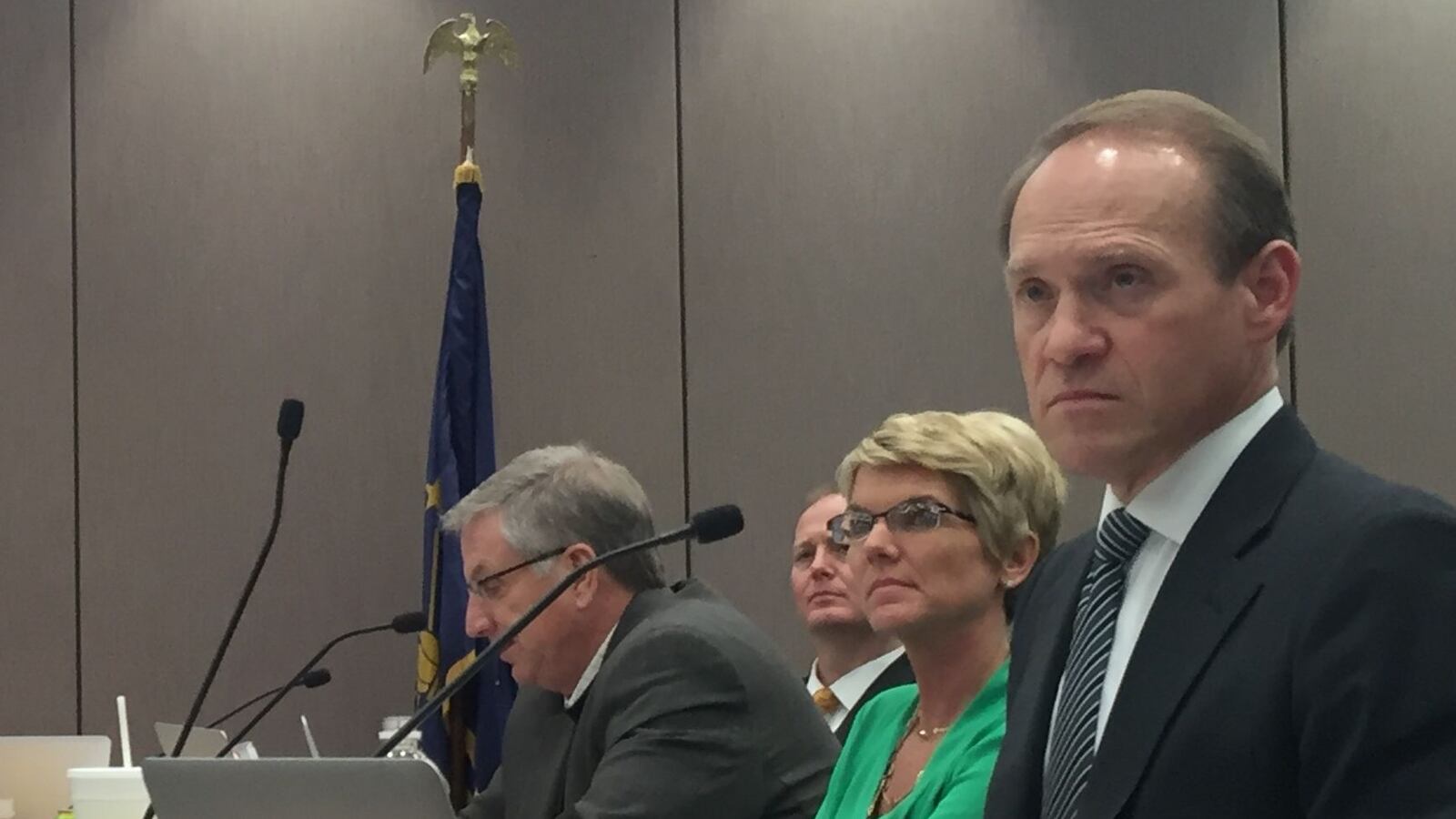Four private schools with repeated years of D and F grades from the state will get to accept new voucher students next fall.
The Indiana State Board of Education today approved Central Christian Academy, Turning Point School, Lutheran South Unity School and Trinity Lutheran School’s requests for waivers after a failed vote last month would have denied them.
The requests take advantage of a new Indiana law passed in April that allows the state board to consider such waivers for private schools that can still show their students have improved academically.
Today, six board members voted in favor of the waivers. Gordon Hendry and Steve Yager were still opposed. State Superintendent Jennifer McCormick, who also voted no last month, was out sick.
Before lawmakers passed House Bill 1384 earlier this year, schools with three consecutive years of Ds or Fs would have been barred from accepting new voucher students until their grades were a “C” or better for two years. In Trinity Lutheran’s case, where a school has three consecutive Fs, they need three years of better grades. The four schools have had just one year so far, and some of that change could be due, in part, to the fact that the state changed its A-F grading system in 2016 to reward test score improvement as well as performance.
The Indiana State Teachers Association spoke out against the waivers, arguing they undermine the state’s accountability system and put some schools above others.
“We feel that this is not good policy, to give schools a pass,” said John O’Neal, an ISTA lobbyist. “It seems like we have a separate accountability system for voucher schools as for (public) schools.”
Like last month, board members Hendry and Yager said today that one year of better grades wasn’t enough to ensure the schools could remain on track.
“I believe very strongly in choice,” Hendry said. “However, I feel there is a yin and yang between choice and accountability, and in this matter, I fall very slightly in favor of accountability.”
But board member Vince Bertram was adamant that the schools should get the waivers because parents had specifically chosen them, saying that’s the “most compelling issue” and a signal of the schools’ quality.
The state should take “any opportunity we have to hold schools accountable, but not restrict choice,” he said.
School leaders, students and parents spoke passionately about their schools and how using vouchers for private school tuition changed their lives.
“We do not turn away students with learning differences or ones who can’t afford us or ones who don’t share our religious tradition,” said David Sexauer, head of schools at Central Christian in Indianapolis. “Granting us this waiver will better enable us to serve families.”
The state board also voted to:
- Approve two transition-to-teaching options for people who want to become teachers but not go through traditional college programs. Teachers of Tomorrow and the American College of Education Teacher Preparation both made proposals to the board about their online teacher certification programs, which would end with participants earning an Indiana teaching license.
- Allow three private religious schools to begin the process to become accredited. Because of a new law passed this year, those schools could accept vouchers now that they’ve started the process, rather than after they finish it.
The state board next meets July 12 in Indianapolis.

